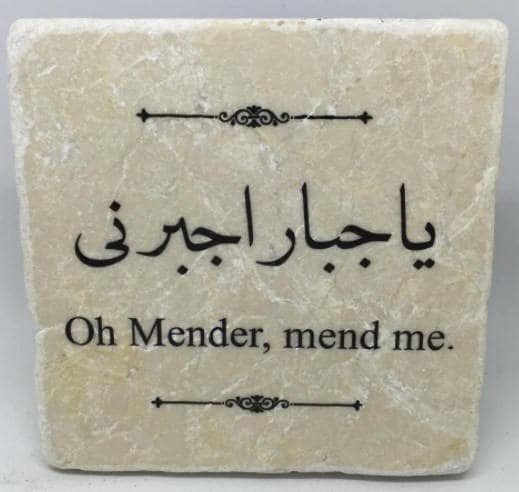The Sufi Handyman
I cannot help but think of islaah in terms of cleaning but also repair.
I remember my first bit of Islamic art was a doodle of a kitchen and all the areas with hidden dirt, grease, dust, broken glass, and food particles and spills. I drew this doodle after cleaning behind the stove. To me it was the perfect illustration of tasawwuf, tazkiya and tarbiya. How many forgotten utensils are lost under a fridge too heavy for us to bother to clean underneath it? Or how much grease is built up on the ceiling above the stove, the mark of years of gluttony? This is what I see tasawwuf as – cleaning what is hidden, those stubborn stains that are too difficult to find the strength to clean, those cracks and crevices that filth loves to hide in, that sets in for far too long to be removed easily. Soaking, scrapping, washing, wiping, rinsing away the sins are for the light sins. But sometimes you need steel wool to dislodge a stain, CLR to chemically treat, a snaking augur to break up a clog, or a hydro vac jet to flush out, or pressure wash to reveal what gunk and residue that is built up with the love of dunya. There is even a treatment to use bacteria to eat away, like sucker fishes, the fat that clogs up kitchen pipes.
“O Allah, wash off my sins with the [melted] water of ice and snow, and purify my heart of sins, just as white clothes are cleansed of filth.” (Sunan Nasai)
The kitchen is an extension of us. The home itself reflects our nafs and our self control. Exhibiting cleanliness and order is not the same as actualizing cleanliness and order. We can be like the munafiq, hiding away our sins in the closet or sweeping them under the rug. That is the essential lesson here: tasawwuf is a never-ending routine of cleaning and organizing and polishing, from dirty to clean to more clean to sparkle. There is an endpoint to a clean room, but not to a clean heart. Ask yourself this riddle: how clean can Jannah be? Are there any caretakers?
The other aspect of tasawwuf is the repair and handyman aspect. The jack-of-all-trades who knows how to use every odd appliance, how it works, how to fix it, the quick fixes, the tricks and lifehacks to save time but also the long fixes. Its the folk knowledge and problem solving IQ that can’t be found on a test. How to fashion a solution from few resources. This is how you can address the spiritual problems that are more insidious and deeper than those that need just cleaning. These are the problems that need repair. This is where patience is needed in islaah. Trauma, addiction, abuse, tragedy, suffering, doubt and depression need fixing that can take many years. The handyman has a truck full of tools and gadgets we don’t have names for. Diagnosing and treating can take time. Bedbugs are easier to prevent by wrapping mattresses in plastic wrap than treating with fumigation. Poverty has its own repair demands – intergenerational trauma, substance abuse, domestic violence – these are akin to when the whole house is falling apart and breaking down from wear and tear. The damage and repair are not the point here: it is that hearts are valued by Allah despite the repairs needed. There is something essential to the heart of a Muslim. Broken, whole, the heart of the Muslim matters most to Allah. Some things can’t be repaired and likewise some hearts will be like that and Allah knows that. I find many devices always break but its about finding to make them work best broken and Allah wants us to learn to accept broken things. Yet, often islaah for these hearts is not going to come from our wisdom or actions, it will only happen through sincere dua for that person’s islaah. Tribulation makes one experience brokenness and purity at the same time. After all, many broken people will be in Jannah with the One who created them whole and put them on a path to become broken in this world, and more beloved to Him broken than they were whole.
Subhana kallahumma wa bihamdika ash-haduana la ilaha illa Ant astaghfiruka wa atubu ilayk, ameen.


:no_upscale()/cdn.vox-cdn.com/uploads/chorus_image/image/56414327/YTLogo_old_new_animation.0.gif)




Leave a comment